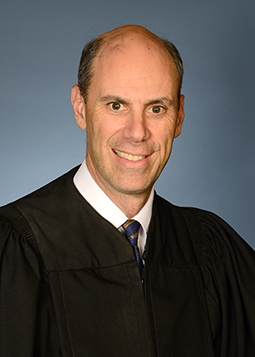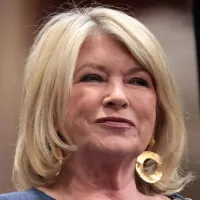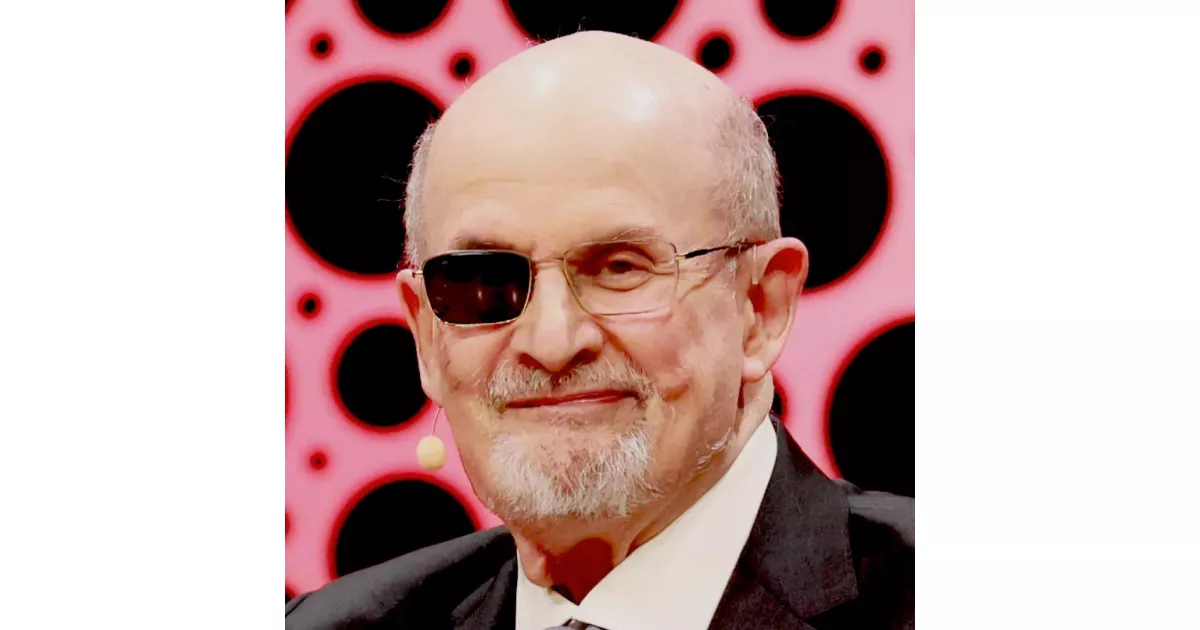An overview of the childhood and early education of Salman Rushdie, highlighting the experiences that shaped the journey.
Sir Ahmed Salman Rushdie is an Indian-born British and American novelist known for blending magic realism and historical fiction. His work explores the relationships between Eastern and Western civilizations, often focusing on the Indian subcontinent. He is celebrated for his second novel, Midnight's Children (1981), which won the Booker Prize and was twice recognized as the best novel among all Booker Prize winners on the 25th and 40th anniversaries.
June 1947: Salman Rushdie Born in Bombay
On June 19, 1947, Salman Rushdie was born in Bombay, British India, into a Kashmiri Muslim family. His parents were Anis Ahmed Rushdie, a lawyer-turned-businessman, and Negin Bhatt, a teacher.
1964: Moves to England
In 1964, Salman Rushdie moved to England to attend Rugby School in Rugby, Warwickshire.
1976: Married Clarissa Luard
In 1976, Salman Rushdie married Clarissa Luard, literature officer of the Arts Council of England.
1979: Birth of son Zafar
In 1979, Salman Rushdie and Clarissa Luard had a son, Zafar.
1987: Divorced Clarissa Luard
In 1987, Salman Rushdie's marriage to Clarissa Luard ended in divorce.
1988: Married Marianne Wiggins
In 1988, Salman Rushdie married American novelist Marianne Wiggins.
1988: Publication of The Satanic Verses and Fatwa
In 1988, Salman Rushdie's fourth novel, The Satanic Verses, was published, leading to controversy. Ruhollah Khomeini, the supreme leader of Iran, issued a fatwa calling for Rushdie's death due to the book's perceived irreverent depiction of Muhammad.
February 1989: Fatwa Ordering Rushdie's Execution
On 14 February 1989, Ayatollah Khomeini proclaimed a fatwa on Radio Tehran ordering Salman Rushdie's execution for writing "The Satanic Verses," which was deemed blasphemous against Islam.
March 1989: UK and Iran Broke Diplomatic Relations
On 7 March 1989, the United Kingdom and Iran broke diplomatic relations over the Rushdie controversy and the fatwa.
1989: Rushdie Discusses Muslim Faith and Secular Humanism
In 1989, in an interview following the fatwa, Rushdie said that he was in a sense a lapsed Muslim, though "shaped by Muslim culture more than any other," and a student of Islam. In another interview the same year, he said, "My point of view is that of a secular human being. I do not believe in supernatural entities, whether Christian, Jewish, Muslim or Hindu."
December 1990: Rushdie Reaffirms Muslim Faith in Statement
In December 1990, Rushdie issued a statement reaffirming his Muslim faith, distancing himself from statements made by characters in Satanic Verses. He also opposed the release of the paperback edition of the novel.
1990: Reviews Vineland and Meets Thomas Pynchon
In 1990, Salman Rushdie reviewed Thomas Pynchon's Vineland in The New York Times and met the author for dinner.
1992: Rushdie Regrets His Statement Reaffirming Muslim Faith
Later, in 1992, Rushdie cited the release of the statement as perhaps his lowest point, regretting its language, which he said he had not written.
August 1993: Public Appearance at U2 Concert
On 11 August 1993, Salman Rushdie made a public appearance at London's Wembley Stadium during a concert by U2, despite the danger posed by the fatwa.
1993: Divorced Marianne Wiggins
In 1993, Salman Rushdie and Marianne Wiggins divorced.
1997: Married Elizabeth West and birth of son Milan
In 1997, Salman Rushdie married British editor and author Elizabeth West. They had a son, Milan, born in 1997.
1999: Rushdie Supported NATO Bombing of Yugoslavia
In 1999, Rushdie supported the NATO bombing of the Federal Republic of Yugoslavia.
1999: First Meeting with Padma Lakshmi
In 1999, Salman Rushdie first met Padma Lakshmi, who was 28 years old at the time.
1999: Operation to correct ptosis
In 1999, Salman Rushdie had an operation to correct ptosis, a condition causing drooping of the upper eyelid, which made it difficult for him to open his eyes.
2000: Moved to the United States
Since 2000, Salman Rushdie has lived in the United States, mostly near Union Square in Lower Manhattan, New York City.
2001: Rushdie Supportive of the US-Led Campaign in Afghanistan
In 2001, Rushdie was supportive of the US-led campaign to remove the Taliban in Afghanistan.
2003: Rushdie Critic of the War in Iraq
In 2003, Rushdie was a vocal critic of the war in Iraq, stating that while there was a "case to be made for the removal of Saddam Hussein", US unilateral military intervention was unjustifiable.
2004: Divorced Elizabeth West
In 2004, Salman Rushdie and Elizabeth West ended their relationship after a miscarriage and later divorced.
2004: Married Padma Lakshmi
In 2004, shortly after his third divorce, Salman Rushdie married Padma Lakshmi.
August 2005: Rushdie Calls for Reform in Islam
In mid-August 2005, Rushdie called for a reform in Islam in a guest opinion piece printed in The Washington Post and The Times.
March 2006: Signed manifesto Together Facing the New Totalitarianism
In March 2006, following the Jyllands-Posten Muhammad cartoons controversy, Salman Rushdie signed the manifesto Together Facing the New Totalitarianism, which warned of the dangers of religious extremism. The manifesto was published in Charlie Hebdo in March 2006.
2006: Rushdie Criticizes Moral and Cultural Relativism
In 2006, Rushdie described his view on moral and cultural relativism in an interview with Point of Inquiry.
2006: Rushdie Supports Jack Straw's Comments on Niqab
In 2006, Rushdie stated that he supported comments by Jack Straw, who criticized the wearing of the niqab. Rushdie stated that his three sisters would never wear the veil.
2006: Lamented the division of Kashmir
In 2006, in an interview about his novel Shalimar the Clown, Rushdie lamented the division of Kashmir into zones of Indian and Pakistani administration.
2006: Rushdie Identifies as a Hardline Atheist
In a 2006 interview with PBS, Rushdie called himself a "hardline atheist".
January 2007: Lakshmi Asked For Divorce
In January 2007, Padma Lakshmi asked for a divorce from Salman Rushdie, after which the couple filed it in July of that year.
2007: Distinguished Writer in Residence at Emory University
In 2007, Salman Rushdie began a five-year term as Distinguished Writer in Residence at Emory University in Atlanta, Georgia, where he has also deposited his archives.
August 2008: Rushdie Receives Apology in High Court
On 26 August 2008, Rushdie received an apology at the High Court in London from Ron Evans, his co-author and their publisher, regarding Evans' planned book release.
2009: Pia Glenn's criticism
In 2009, actress Pia Glenn criticized Salman Rushdie as "cowardly, dysfunctional, and immature" after he ended their relationship via email.
2010: Adam Clayton Recalls Rushdie's Visits to U2 Concerts
In 2010, U2 bassist Adam Clayton recalled that after his public appearance at their Wembley concert in 1993, Salman Rushdie was a regular visitor backstage.
July 2012: Criticism of gun control
In July 2012, Salman Rushdie blamed a shooting at a Colorado cinema on the American right to keep and bear arms, expressing his support for gun control.
2012: Criticism of Imran Khan
In 2012, Rushdie was critical of Pakistan's former Prime Minister Imran Khan after Khan took personal jabs at him in an interview.
2012: Embraces Booktrack with "In the South"
In 2012, Salman Rushdie embraced Booktrack by publishing his short story "In the South" on the platform, making him one of the first major authors to do so.
2014: Taught a seminar on British Literature
In 2014, Salman Rushdie taught a seminar on British Literature and served as the 2015 keynote speaker.
September 2015: Joined New York University Journalism Faculty
In September 2015, Salman Rushdie joined the New York University Journalism Faculty as a Distinguished Writer in Residence.
2015: Rushdie's Views on Literature and Feminism in 2015
In 2015 Rushdie stated that there are the larger stories, the grand narratives that we live in, which are things like nation, and family, and clan, and so on. Those stories are considered to be treated reverentially. His support of feminism can also be seen in a 2015 interview with New York magazine's The Cut.
2015: Distinguished Writer in Residence at NYU
In 2015, Salman Rushdie was named Distinguished Writer in Residence at the Arthur L. Carter Journalism Institute of New York University.
2016: Acquired American citizenship and voted for Hillary Clinton
In 2016, Salman Rushdie acquired American citizenship and voted for Hillary Clinton in that year's election.
August 2019: Criticized Revocation of Special Status of Jammu and Kashmir
In August 2019, Salman Rushdie criticized the revocation of the special status of Jammu and Kashmir, calling it an atrocity.
July 2020: Signed Harper's Letter
In July 2020, Salman Rushdie was among the 153 signers of the "Harper's Letter", also known as "A Letter on Justice and Open Debate", which expressed concern over the constriction of free exchange of information and ideas.
2021: Married Rachel Eliza Griffiths
In 2021, Salman Rushdie married American poet and novelist Rachel Eliza Griffiths.
August 2022: Attack on Salman Rushdie in New York
On 12 August 2022, while about to start a lecture at the Chautauqua Institution in Chautauqua, New York, Rushdie was attacked by a man who rushed onto the stage and stabbed him repeatedly. He was airlifted to UPMC Hamot in Erie, Pennsylvania, where he underwent surgery.
October 2022: Rushdie Loses Sight in One Eye and Use of One Hand After Attack
On 23 October 2022, Wylie reported that Rushdie had lost sight in one eye and the use of one hand but survived the murder attempt.
2022: Rushdie Attacked in New York
In 2022, Salman Rushdie was attacked and severely injured as he was about to give a public lecture in New York.
2022: Stabbing at Chautauqua Institution
In 2022, Salman Rushdie was stabbed at the Chautauqua Institution in New York, resulting in the loss of his right eye and damage to his liver and hands.
January 2024: Trial of Hadi Matar Delayed
In January 2024, the jury selection for the trial was originally scheduled to begin on 8 January 2024. However, Matar's lawyer successfully petitioned to delay the trial, arguing that they are entitled to see the memoir and any related materials before Matar stands trial, as the documents constitute evidence.
May 2024: Arguments About Palestinian State
In May 2024, Rushdie argued that if a Palestinian state ever came into being, it would resemble a "Taliban-like state" and become a client state of Iran. He voiced his puzzlement regarding the current support of progressive students for what he described as a "fascist terrorist group".
February 2025: Hadi Matar Found Guilty of Attempted Murder
In February 2025, the attacker, Hadi Matar, was found guilty of attempted murder and assault in connection with the stabbing.
May 2025: Hadi Matar Sentenced to 25 Years in Prison
In May 2025, Hadi Matar was sentenced to 25 years in prison for the attack on Salman Rushdie.
Mentioned in this timeline
Home Box Office HBO is an American pay television service...

Hillary Diane Rodham Clinton is an American politician lawyer and...
India officially the Republic of India is a South Asian...

Bill Maher is an American comedian writer producer political commentator...

Los Angeles is the most populous city in California and...
Iraq officially the Republic of Iraq is a West Asian...
Trending

6 months ago DOJ Files Misconduct Complaint Against Judge Boasberg in Deportations Case Escalating Court War.

10 months ago Haaland's Absence: Manchester City Prepares for Derby Amidst Injury Concerns

6 months ago Bruno Fernandes Confirms Al Hilal Talks, Admits Uncertainty About Man United Future

Harvey Elliott is an English professional footballer known for playing as an attacking midfielder or right winger He currently plays...

10 months ago Matheus Cunha transfer: Manchester United advances, Ruben Amorim enters race, Wolves exit looms.

3 months ago Martha Stewart's Holiday Collection Returns for 2025: Decor and Dining Favorites!
Popular

Thomas Douglas Homan is an American law enforcement officer who...

William Franklin Graham III commonly known as Franklin Graham is...

Jupiter is the fifth and largest planet from the Sun...

XXXTentacion born Jahseh Dwayne Ricardo Onfroy was a controversial yet...

Melania Trump a Slovenian-American former model has served as First...

Kristi Noem is an American politician who has served as...



